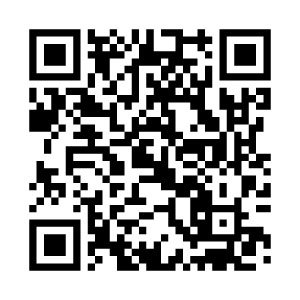
Study In Canada
OVERVIEW
- Canada’s universities are among the top global positioning institutions and keep up exclusive expectations of scholarly greatness with education costs being among the most reduced in English-talking nations
- The United Nations positioned Canada as probably the best spot on the planet to live; most of the worldwide students in Canada pick to work after graduation and make Canada their perpetual home by applying for lasting residency
- Multicultural, more than 90 dialects spoken in the more significant urban areas
- Canadian Universities are enhanced and convey quality training with an assortment of projects (endorsements, recognitions, partner degrees, degrees, aces, doctorate, and so forth.)
- The Canadian government has financed education costs and courses are moderately reasonable when contrasted with US, UK and Australian Universities. Canada nearly ensures a keen interest in instruction.
- Canada gloats of a portion of the world’s best instructive institutions, with remarkable projects in an enormous vista of fields. Canadian university degrees are held in high respect by businesses around the globe
- Canada is a country that is inviting to international students from around the world, and this disposition is of favorable preferred position to all planned and scholastically healthy international Students.
Education System
- Education is a commonplace obligation under the Canadian constitution, which implies there are various contrasts between the training frameworks of the various provinces.
- The education system in Canada incorporates Public-funded colleges: Universities are commonly Public financed, giving courses extending from Degree to PhD level and research-based Private junior colleges/specialized foundations, profession school colleges and college universities give recognitions which is ability based or Job arranged, that prompts unhitched males in Universities with a suitable exchange of credits.
- One hundred seventy-five post-auxiliary foundations which are individuals from the Association of Canadian Community Colleges (ACCC) are authoritatively known by a scope of titles, including Community College/College/Technical Institute/University College, and Cégep.
Entry Criteria
- The requirement for Masters is an average GPA of 70 % or more in a Bachelor’s Degree (in a perfect world four years degree, anyway this may move)
- The requirement for Bachelors is an average score of 70% or more in Secondary and higher helper preparing
- Essential for Under Graduate Diploma is an average score of 55 % or more in twelfth standard
- Essential for Post Graduate Diploma is an average score of 55% or more in the Bachelor’s Degree
Required Language Test(s)
- IELTS is a necessity to almost all Public funded Universities and junior colleges, and the minimum score required differs from 6.0 to 7.0 contingent upon the sort of universities or colleges
- SAT is required uniquely for individual Public Universities
- GRE is not compulsory and is required uniquely for specific universities. However, a decent GRE score improves the opportunity to get into a decent university
- GMAT is not obligatory for all business universities; however, for some, it is mandatory.
Visa Process
- The Canadian High Commission acknowledges visa application through VFS administrations.
- The visa applications might be submitted at the VFS office. All applications will be evaluated at The Canadian High Commission in Bangladesh.
- After submission of the quick application form, application, expenses, and expected archives to the Visa Office, the visa is prepared and given. All candidates wishing to study in Canada must fulfil an official that they will leave Canada before the finish of the period approved for the remainder, that they will not repudiate the states of confirmation and has satisfactory assets to pay for the educational cost and everyday costs while in Canada and come back to the home nation of habitation, students must be honest and have no record of crime.
Part-time Job
International students can work on campus or off-campus on a part-time basis while studying. To qualify, a student must be a full-time student enlisted at a taking an interest openly financed post-auxiliary instructive foundation or in an affirmed program at a qualified secretly subsidized institution.
Post Study Options
International students who study for a programme with a minimum duration of 8 months are eligible to apply for a work permit under the Post-Graduation Work Permit Program (PGWPP) in Canada. Students are allowed to stay back in Canada after their studies; the duration depends on the duration of the program. If the study period is less than two years, then the stay back will be equal to the duration of the course, and if the program is two years or more than two years, then the stay back will be three years.

